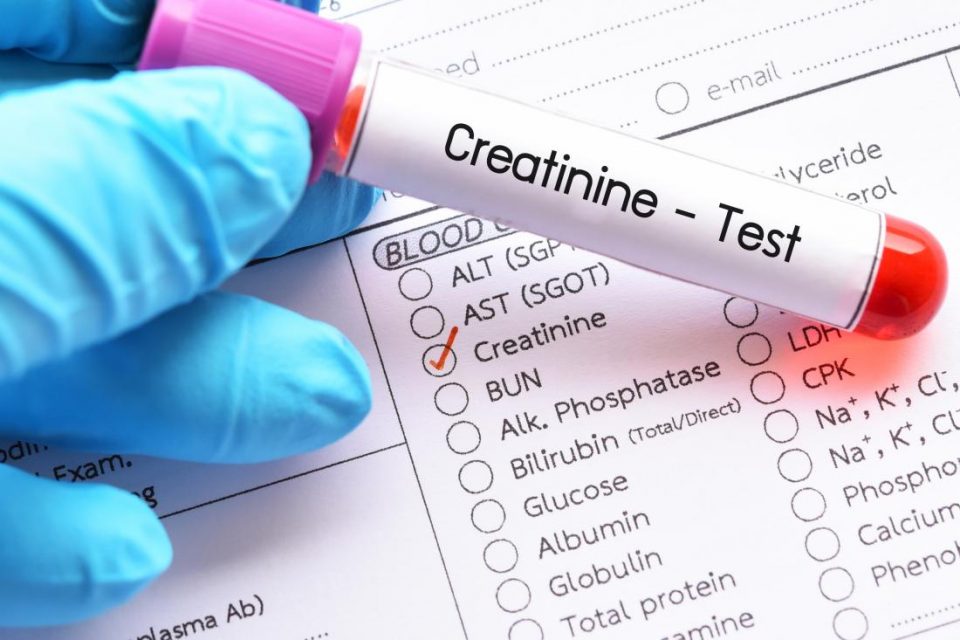- Creatinine is a waste material that is created out of the normal wear and tear of the body muscles. In the human body, there is Creatine phosphate. Creatine phosphate is a high-energy molecule, and its by-product is known as creatinine.
- Creatinine is produced in the body at a constant rate, but it is cleared by the kidneys from the human blood. However, sometimes when kidneys don’t work properly, this level gets increased and your doctor may ask you to get a creatinine test done.
- When is the Creatinine Test recommended?
- The creatinine test is the test that is precisely done to test the working of the kidneys. This test can be conducted through two methods, i.e., either through blood or urine. A doctor may recommend this test to a patient in the following situations:
- To find out the kidney disease which may get caused due to high blood pressure, diabetes, or other conditions that may lead to kidney disease.
- To monitor the progression of the kidney treatment
- To decide a diagnosis in case of symptoms of kidney disease
- To monitor the side effects of a drug that may cause kidney disease.
- For monitoring the functioning of the transplanted kidney.
- Symptoms that may create Creatinine serum Test requirement
- There are many symptoms that a patient may get in case of kidney disease. This may include the following:
- Fatigue
- Foamy or bloody urine
- Puffiness around the eyes
- Decreased appetite
- Swelling on feet or ankle
- Frequent or difficult in urination
- Apart from this, a patient may need a creatinine test in the following cases:
- High blood pressure condition
- Family history of kidney disease
- Type 1 or Type 2 diabetes
- How is the Creatinine serum test conducted?
- For a creatinine serum test, an individual need not do a special preparation. There is no need to do fasting. An individual can eat or drink as they do. However, in this test, it is important to tell the doctor about the medications if an individual is consuming them. It is so because some drugs can increase the creatinine level without causing damage to the kidney. This may lead to false test results.
- Now, when an individual visits the healthcare institution, a healthcare professional will take a blood sample. For a blood sample, first, the skin above the vein will be cleaned with an antiseptic. After which, a bandage will be wrapped around the arm. A small needle will be injected into the vein, and the blood will be extracted.
- Once the blood sample process is completed, a healthcare professional will use a tape or bandage to gauze the point. He/she may ask the patient to pressurize to gauze it.
- How is the Creatinine Urine Test Conducted?
- The process of the creatinine urine test is way different from the serum test. In case of a urine test, the urine will be collected by the patient and then handed over to the healthcare professional. For this collection process, a patient will be asked to collect all the urine during the 24 hours. A container will be given by the professional for storing the urine.
- The steps for a 24-hour urine sample test are:
- In the morning, empty the bladder and flush it away. Record the time.
- Store all the urine during the 24 hours in a container.
- Store the container in an ice cooler or refrigerator.
- Hand over the container to the healthcare professional for lab tests.
- What do the Creatinine Serum Test Results mean?
- The level of the creatinine is measured in mg/dL. However, the standard level of creatinine may vary as per age and gender. The more muscular individuals may have high creatinine levels.
- The normal creatinine levels are as follows:
- Men aged between 18 to 60 years tend to have a normal level ranging between 0.9 mg/dL-1.3 mg/dL.
- Women aged between 18 to 60 years tend to have a normal level ranging between 6 mg/dL-1.1 mg/dL.
- Individuals above 60 years roughly have a level similar to mentioned above.
- Results that show a level more than the normal level are considered as the high-level creatinine level. A high-level means that the kidney is not functioning appropriately.
- The high or low-level creatinine may indicate the following issues:
- Heart Failure
- Complications of diabetes
- Autoimmune diseases
- Blocked urinary tract
- Bacterial infection of the kidneys
- However, sometimes the level of creatinine gets disturbed due to some conditions. This may include the following:
- Certain Medications
- A diet in red meat
- Intense exercise
- Pregnancy
- What to do after Creatinine Test Results?
- The Creatinine test results are difficult to measure. Once an individual receives the test results, one should immediately consult the doctor. The doctor will then analyze the results. They can tell the exact results, whether the kidney is working properly, or not. They may recommend further tests to get better results or analyze the situation accurately.
- Conclusion
- Creatinine levels in a human body should stay at their normal state. Any high or low in this level may lead to problems. This is especially true in the case of high creatinine levels. Therefore, it is essential to consult the doctor and take a creatinine test for early diagnosis.
previous post

